10 Richest Countries in Europe
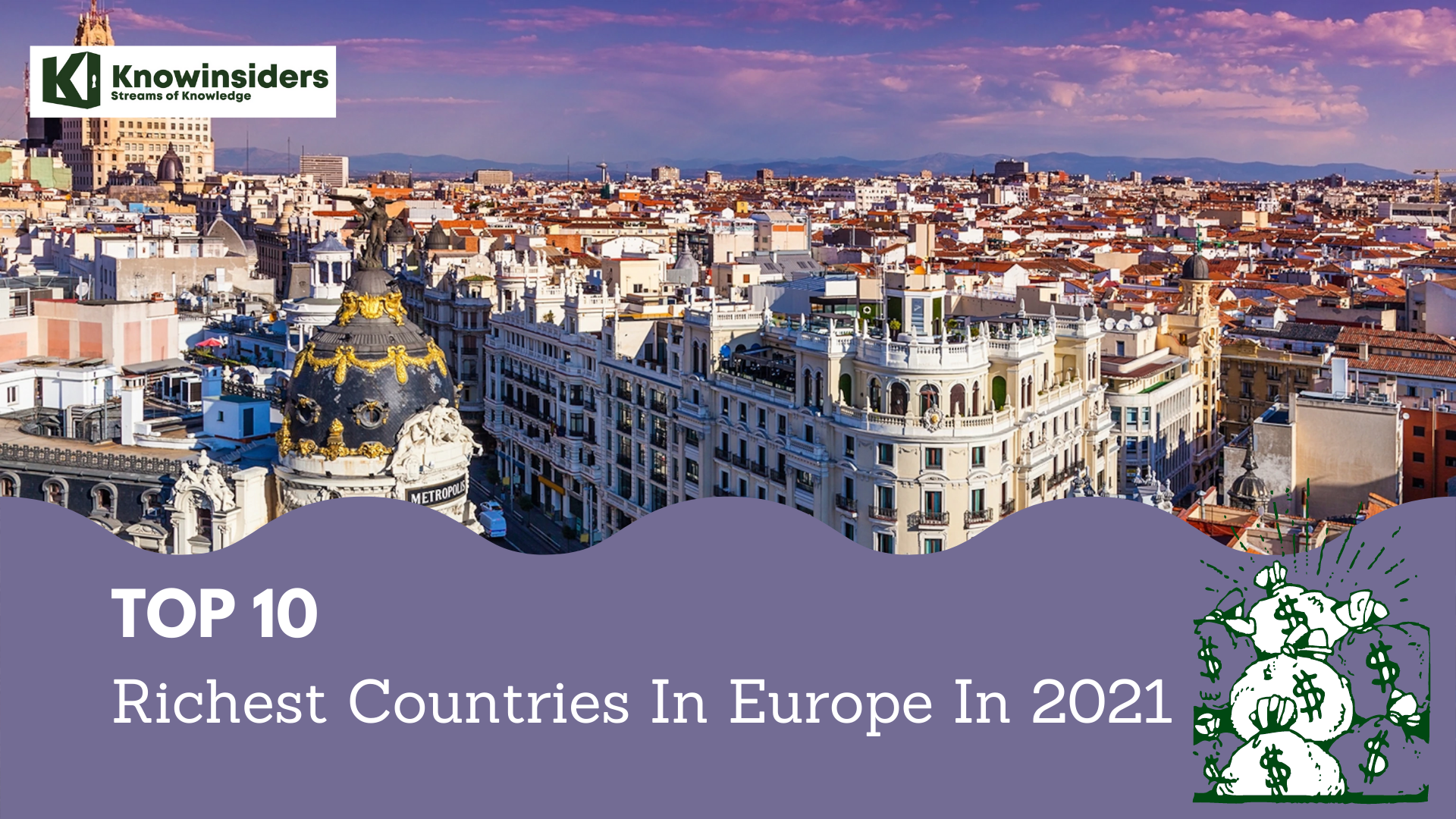 |
One of the main factors that contribute to Europe’s wealth lies with the top six countries on the continent. When they combine, the countries provide $14.35 trillion for the international monetary fund (IMF) GDP in 2019, making them some of the most productive countries in the area. In addition to having its bustling economies, each country has unique attributes that help it obtain more recognition over time. Here is a general overview of those richest countries:
| Germany: Known for its excellent food, creative festivals, and historical culture. Many famous inventors - like Albert Einstein and Fritz Haber - came from this country as well. United Kingdom: Known for being one of the most significant economic and military powers in the world and having great social influence. They will also be known for leaving the European Union. France: Known as one of the most visited countries in the world and one of the largest countries on the continent. It is also known for its vibrant scene and cultural attractions, like the Eiffel Tower, which brings plenty of tourists. Italy: Known mostly for its cultural attractions and contributions to the world. It is also known for its beautiful scenery and fantastic Italian food. Russia: Known for being the largest country in the world and having a cultural environment. People are also seen as their most valuable assets in the workforce. Spain: Known for its vibrant food and celebration scenes. It is also known for its unique events that are held, like bullfighting. Netherlands: Known for its natural scenery and various active activities available. The country contributed $914.00 billion into the IMF GDP in 2019. Switzerland: Known for their famous inventions and having one of the longest life expectancies in the world. The country contributed $707.57 billion into the IMF GDP in 2019. Romania: Known for more of its natural attractions and good food. The country contributed $244.16 billion into the IMF GDP in 2019. Serbia: Known for its national parks and fun activities, like skiing. The country contributed $52.42 billion into the IMF GDP in 2019. |
List of top 10 richest countries in Europe in 2021
1. Germany ($3.48 Tn)
2. United Kingdom ($2.65 Tn)
3. France ($2.47 Tn)
4. Italy ($1.86 Tn)
5. Russia ($1.25 Tn)
6. Spain ($1.24 Tn)
7. Netherlands ($777.23 Bn)
8. Switzerland ($668.85 Bn)
9. Sweden ($514.48 Bn)
10. Poland ($471.40 Bn)
Detailed information on top 10 richest countries in Europe in 2021
1. Germany ($3.48 Tn)
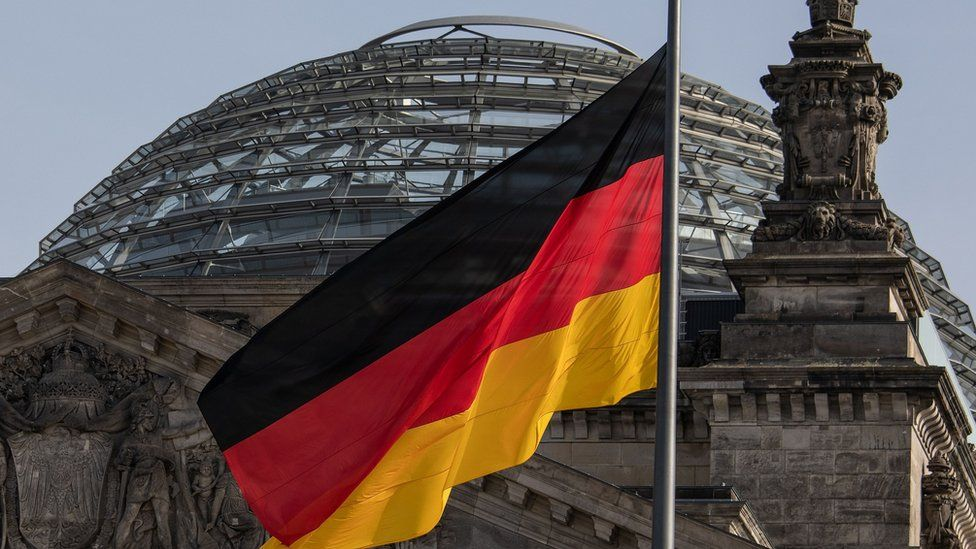 |
| Photo: Getty Images |
Germany, officially the Federal Republic of Germany, is a country in Central Europe. It is the second-most populous country in Europe after Russia, and the most populous member state of the European Union. Germany is situated between the Baltic and North seas to the north, and the Alps to the south; covering an area of 357,022 square kilometres (137,847 sq mi), with a population of over 83 million within its 16 constituent states. It borders Denmark to the north, Poland and the Czech Republic to the east, Austria and Switzerland to the south, and France, Luxembourg, Belgium, and the Netherlands to the west. The nation's capital and largest city is Berlin, and its financial centre is Frankfurt; the largest urban area is the Ruhr.
Germany is a great power with a strong economy; it has the largest economy in Europe, the world's fourth-largest economy by nominal GDP, and the fifth-largest by PPP. As a global leader in several industrial, scientific and technological sectors, it is both the world's third-largest exporter and importer of goods. As a developed country, which ranks very high on the Human Development Index, it offers social security and a universal health care system, environmental protections, and a tuition-free university education. Germany is a member of the United Nations, NATO, the G7, the G20, and the OECD. It has the fourth-greatest number of UNESCO World Heritage Sites.
2. United Kingdom ($2.65 Tn)
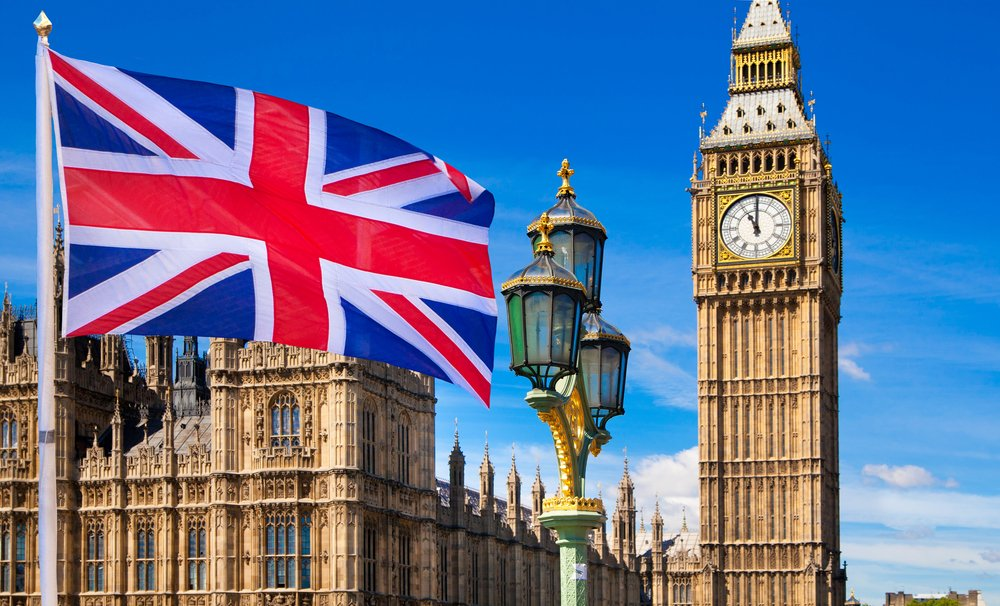 |
| Photo: Getty Images |
The United States of America (U.S.A. or USA), commonly known as the United States (U.S. or US) or America, is a country primarily located in North America. It consists of 50 states, a federal district, five major unincorporated territories, 326 Indian reservations, and some minor possessions. At 3.8 million square miles (9.8 million square kilometers), it is the world's third- or fourth-largest country by total area. The United States shares significant land borders with Canada to the north and Mexico to the south, as well as limited maritime borders with Cuba, Russia, and the Bahamas. With a population of more than 331 million people, it is the third most populous country in the world. The national capital is Washington, D.C., and the most populous city is New York City.
The United States is a highly developed country, and continuously ranks high in measures of socioeconomic performance. It accounts for approximately a quarter of global GDP and is the world's largest economy by GDP at market exchange rates. By value, the United States is the world's largest importer and the second-largest exporter of goods. Although its population is only 4.2% of the world's total, it holds 29.4% of the total wealth in the world, the largest share held by any country. Making up more than a third of global military spending, it is the foremost military power in the world and is a leading political, cultural, and scientific force internationally.
3. France ($2.47 Tn)
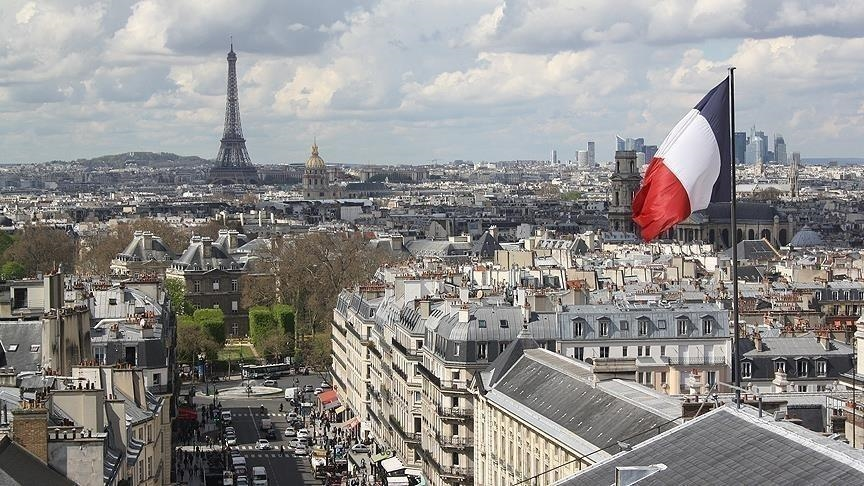 |
| Photo: Getty Images |
France is a non-contiguous transcontinental country consisting of metropolitan France in Western Europe and several overseas regions and territories.[XIII] The metropolitan area of France extends from the Rhine to the Atlantic Ocean and from the Mediterranean Sea to the English Channel and the North Sea. The overseas territories include French Guiana in South America and several islands in the Atlantic, Pacific and Indian Oceans. France borders Belgium, Luxembourg and Germany to the northeast, Switzerland, Monaco and Italy to the east, Andorra and Spain to the south, as well as the Netherlands, Suriname and Brazil in the Americas. The country's eighteen integral regions (five of which are situated overseas) span a combined area of 643,801 km2 (248,573 sq mi) and a total population of 67.413 million (as of May 2021). France is a unitary semi-presidential republic with its capital in Paris, the country's largest city and main cultural and commercial centre. Other major urban areas include Lyon, Marseille, Toulouse, Bordeaux, Lille and Nice. France, including its overseas territories, has the most time zones of any country, with a total of twelve.
France retains its centuries-long status as a global centre of art, science, and philosophy. It hosts the world's fifth-largest number of UNESCO World Heritage Sites and is the leading tourist destination, receiving over 89 million foreign visitors in 2018. France is a developed country with the world's seventh-largest economy by nominal GDP, and the ninth-largest by PPP. In terms of aggregate household wealth, it ranks fourth in the world.
4. Italy ($1.86 Tn)
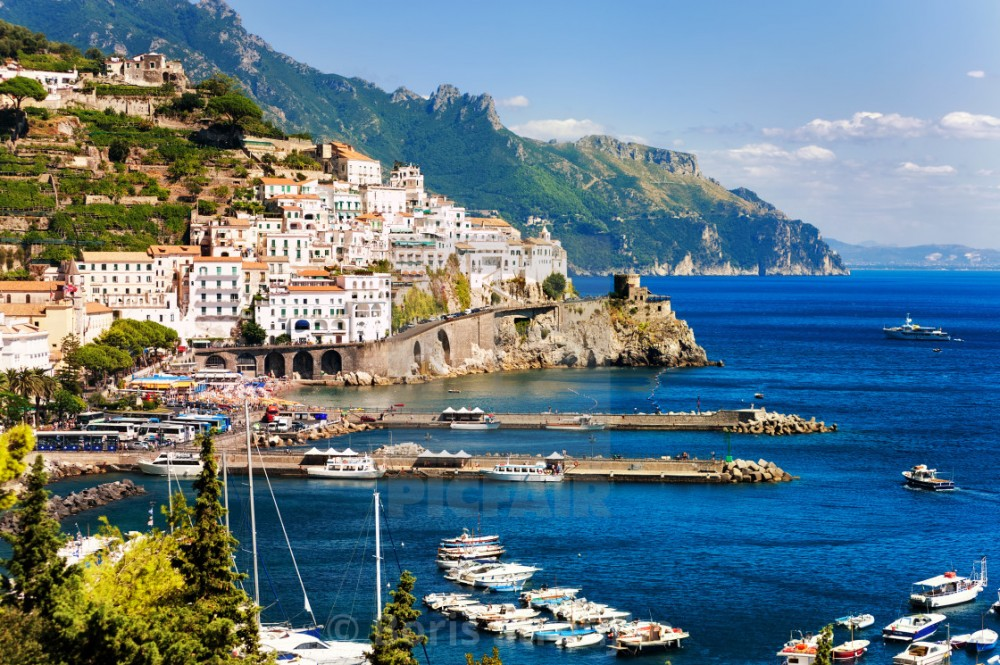 |
| Photo: Getty Images |
Italy, officially the Italian Republic, is a country consisting of a peninsula delimited by the Alps and several islands surrounding it. Italy is located in the center of Southern Europe and the Mediterranean Sea, and is also considered part of Western Europe. A unitary parliamentary republic with Rome as its capital and largest city, the country covers a total area of 301,340 km2 (116,350 sq mi) and shares land borders with France, Switzerland, Austria, Slovenia, and the enclaved microstates of Vatican City and San Marino. Italy has a territorial enclave in Switzerland (Campione) and a maritime exclave in Tunisian waters (Lampedusa). With around 60 million inhabitants, Italy is the third-most populous member state of the European Union.
Today, Italy is considered to be one of the world's most culturally and economically advanced countries, with the world's eighth-largest economy by nominal GDP (third in the European Union), sixth-largest national wealth and third-largest central bank gold reserve. It ranks very highly in life expectancy, quality of life, healthcare, and education. The country plays a prominent role in regional and global economic, military, cultural and diplomatic affairs; it is both a regional power and a great power, and is ranked the world's eighth most-powerful military.
5. Russia ($1.25 Tn)
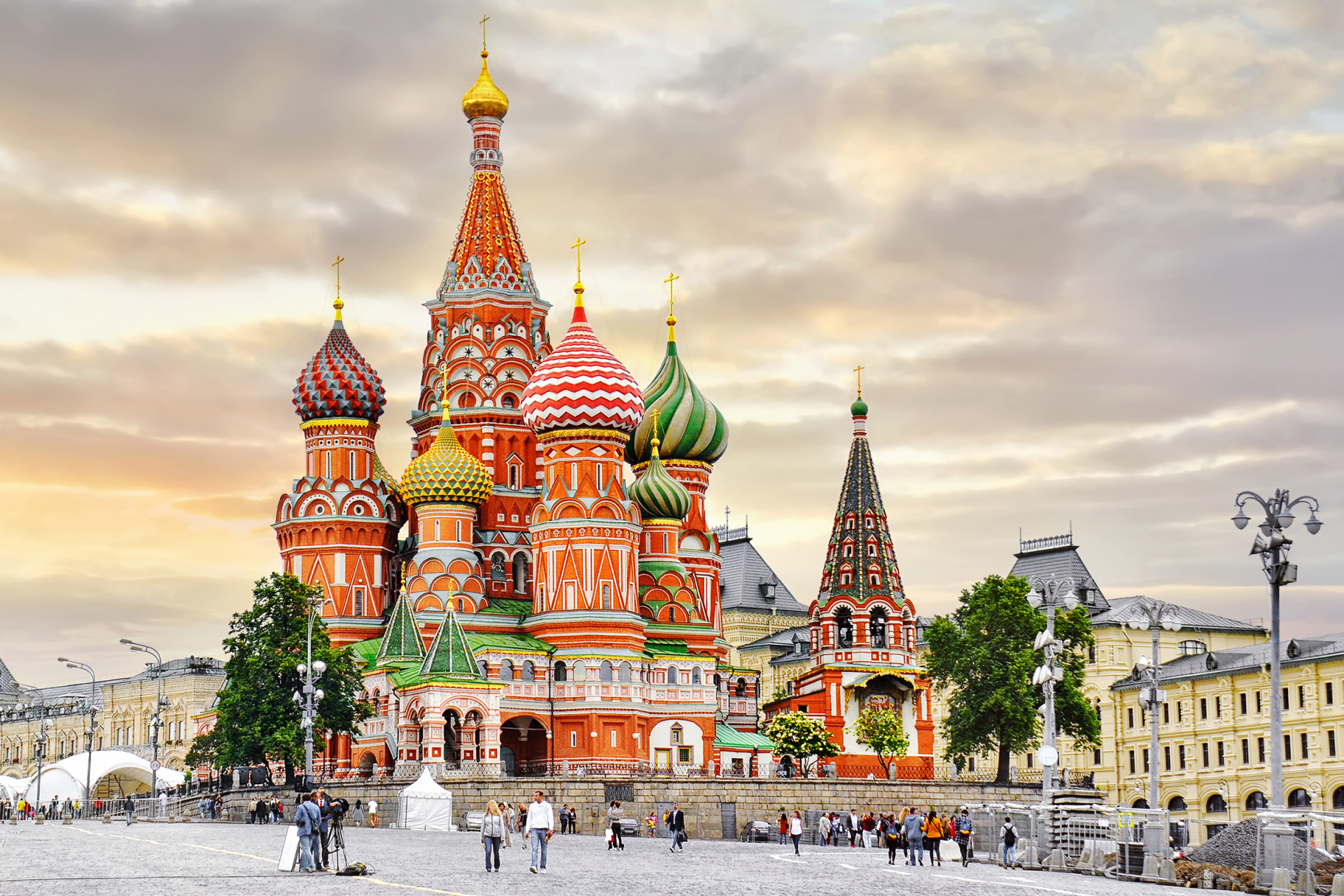 |
| Photo: Getty Images |
Russia, or the Russian Federation, is a country spanning Eastern Europe and Northern Asia. It is the largest country in the world, covering over 17 million square kilometres (6.6×106 sq mi), and encompassing more than one-eighth of Earth's inhabited land area. Russia extends across eleven time zones, and has the most borders of any country in the world, with sixteen sovereign nations. It has a population of 146.2 million; and is the most populous country in Europe, and the ninth-most populous country in the world. Moscow, the capital, is the largest city in Europe, while Saint Petersburg is the nation's second-largest city and cultural centre. Russians are the largest Slavic and European nation; they speak Russian, the most spoken Slavic language, and the most spoken native language in Europe.
Russia is a great power, and is considered a potential superpower. It is ranked very high in the Human Development Index, with a universal healthcare system, and a free university education. Russia's economy is the world's eleventh-largest by nominal GDP and the sixth-largest by PPP. It is a recognised nuclear-weapons state, possessing the world's largest stockpile of nuclear weapons, with the world's second-most powerful military, and the fourth-highest military expenditure.
6. Spain ($1.24 Tn)
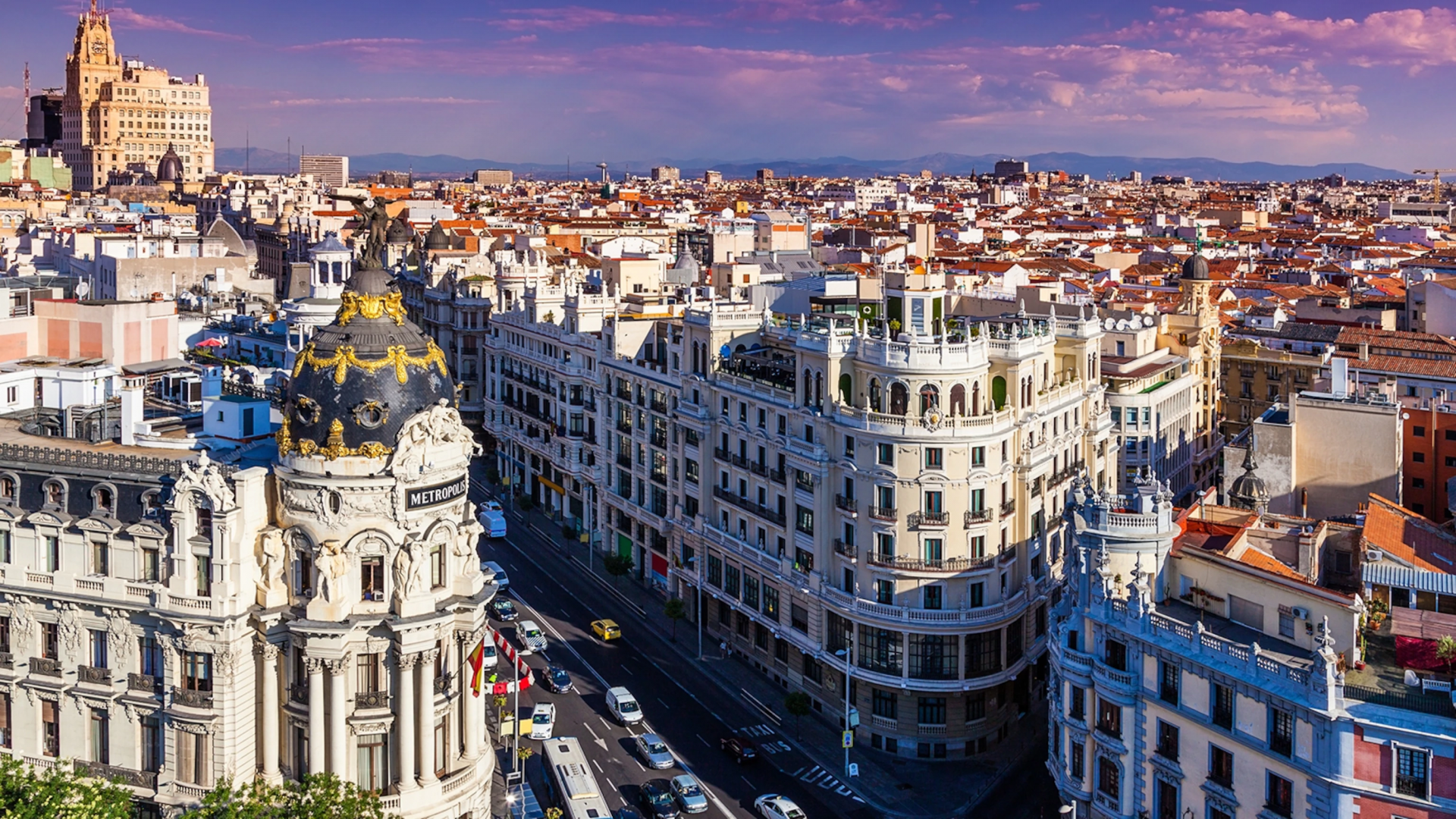 |
| Photo: Getty Images |
Spain is a secular parliamentary democracy and a constitutional monarchy, with King Felipe VI as head of state. It is a highly developed country and a high income country, with the world's fourteenth-largest economy by nominal GDP and the sixteenth-largest by PPP. Spain has one of the longest life expectancies in the world. Spain is a member of the United Nations (UN), the European Union (EU), the Eurozone, the Council of Europe (CoE), the Organization of Ibero-American States (OEI), the Union for the Mediterranean, the North Atlantic Treaty Organization (NATO), the Organisation for Economic Co-operation and Development (OECD), Organization for Security and Co-operation in Europe (OSCE), the Schengen Area, the World Trade Organization (WTO) and many other international organisations. While not an official member, Spain has a "Permanent Invitation" to the G20 summits, participating in every summit, which makes it a de facto member of the group.
7. Netherlands ($777.23 Bn)
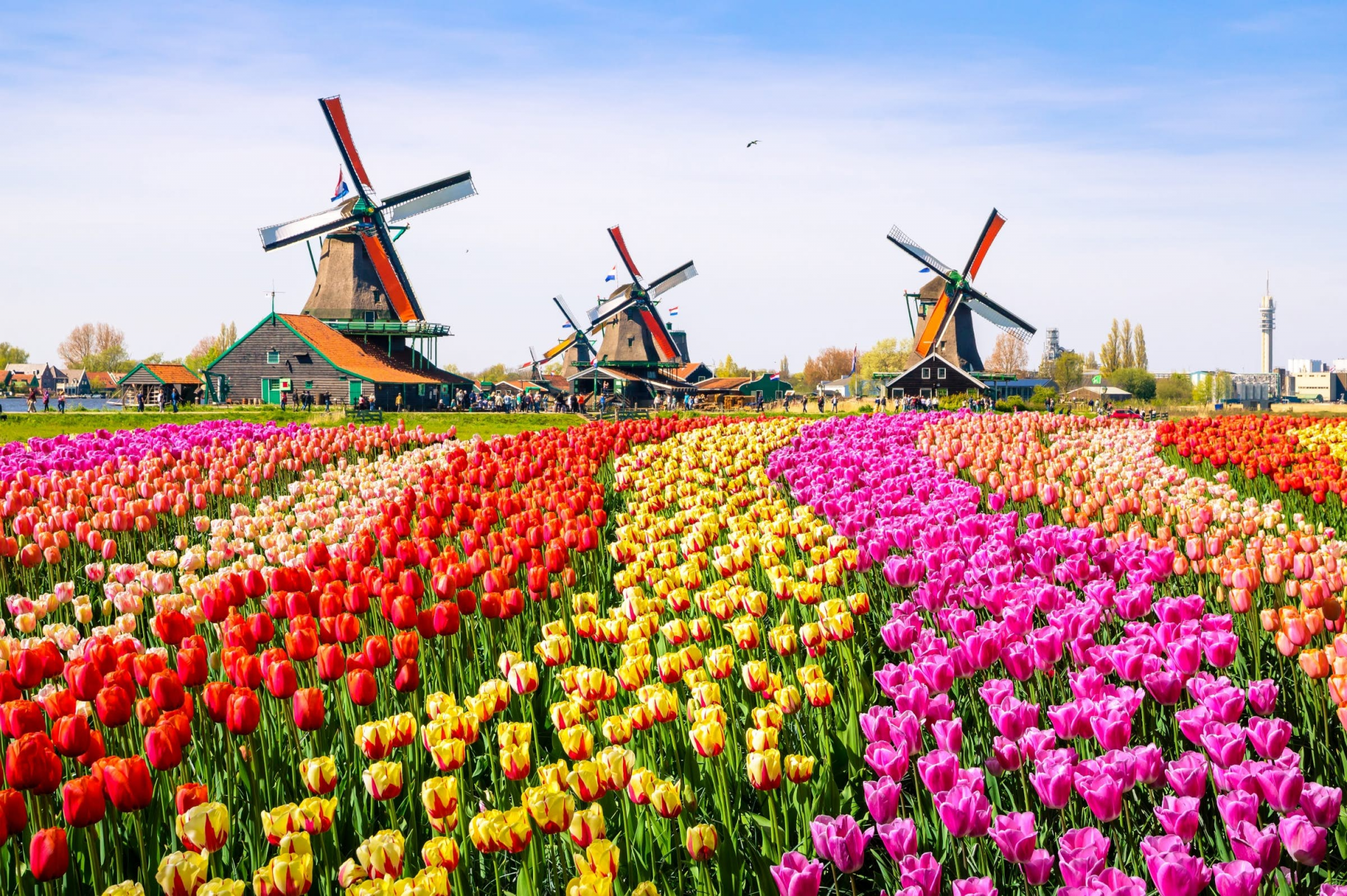 |
| Photo: Lonely Planet |
The Netherlands has been a parliamentary constitutional monarchy with a unitary structure since 1848. The country has a tradition of pillarisation and a long record of social tolerance, having legalised abortion, prostitution and human euthanasia, along with maintaining a liberal drug policy. The Netherlands abolished the death penalty in Civil Law in 1870, though it was not completely removed until a new constitution was approved in 1983. The Netherlands allowed women's suffrage in 1919, before becoming the world's first country to legalise same-sex marriage in 2001. Its mixed-market advanced economy had the eleventh-highest per capita income globally. The Netherlands ranks among the highest in international indexes of press freedom, economic freedom,human development and quality of life, as well as happiness. In 2020, it ranked eighth on the human development index and fifth on the 2021 World Happiness Index.
8. Switzerland ($668.85 Bn)
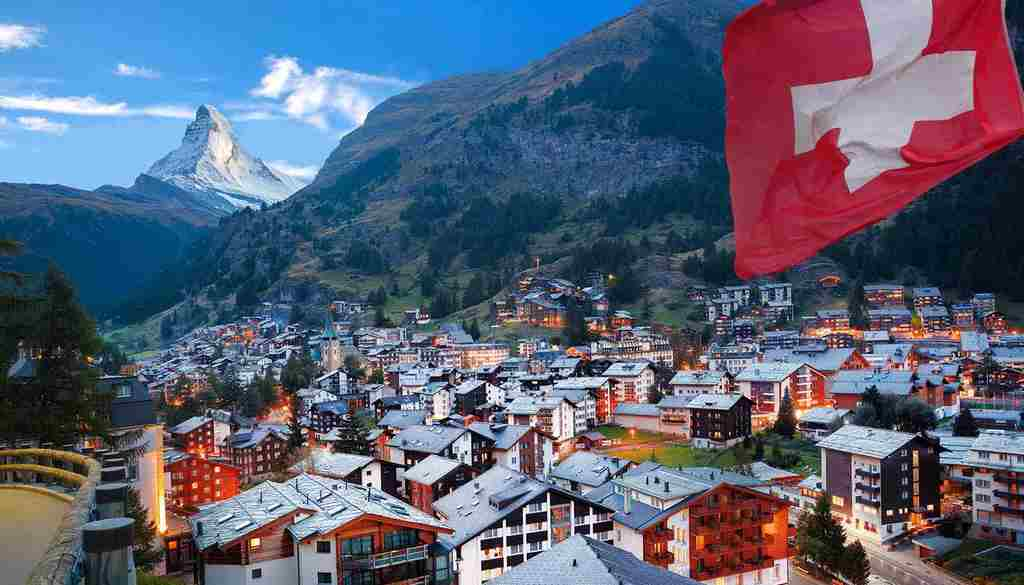 |
| Photo: Getty Images |
Switzerland occupies the crossroads of Germanic and Romance Europe, as reflected in its four main linguistic and cultural regions: German, French, Italian and Romansh. Although the majority of the population are German-speaking, Swiss national identity is rooted in a common historical background, shared values such as federalism and direct democracy, as well as Alpine symbolism. Due to its linguistic diversity, Switzerland is known by a variety of native names: Schweiz [ˈʃvaɪts] (German); Suisse [sɥis(ə)] (French); Svizzera [ˈzvittsera] (Italian); and Svizra [ˈʒviːtsrɐ, ˈʒviːtsʁɐ] (Romansh). On coins and stamps, the Latin name, Confoederatio Helvetica – frequently shortened to "Helvetia" – is used instead of the four national languages. A developed country, it has the highest nominal wealth per adult and the eighth-highest per capita gross domestic product; it has been considered a tax haven. It ranks highly on some international metrics, including economic competitiveness and human development. Its cities such as Zürich, Geneva and Basel rank among the highest in the world in terms of quality of life, albeit with some of the highest costs of living in the world. In 2020, IMD placed Switzerland first in attracting skilled workers. The WEF ranks it the fifth most competitive country globally.
9. Sweden ($514.48 Bn)
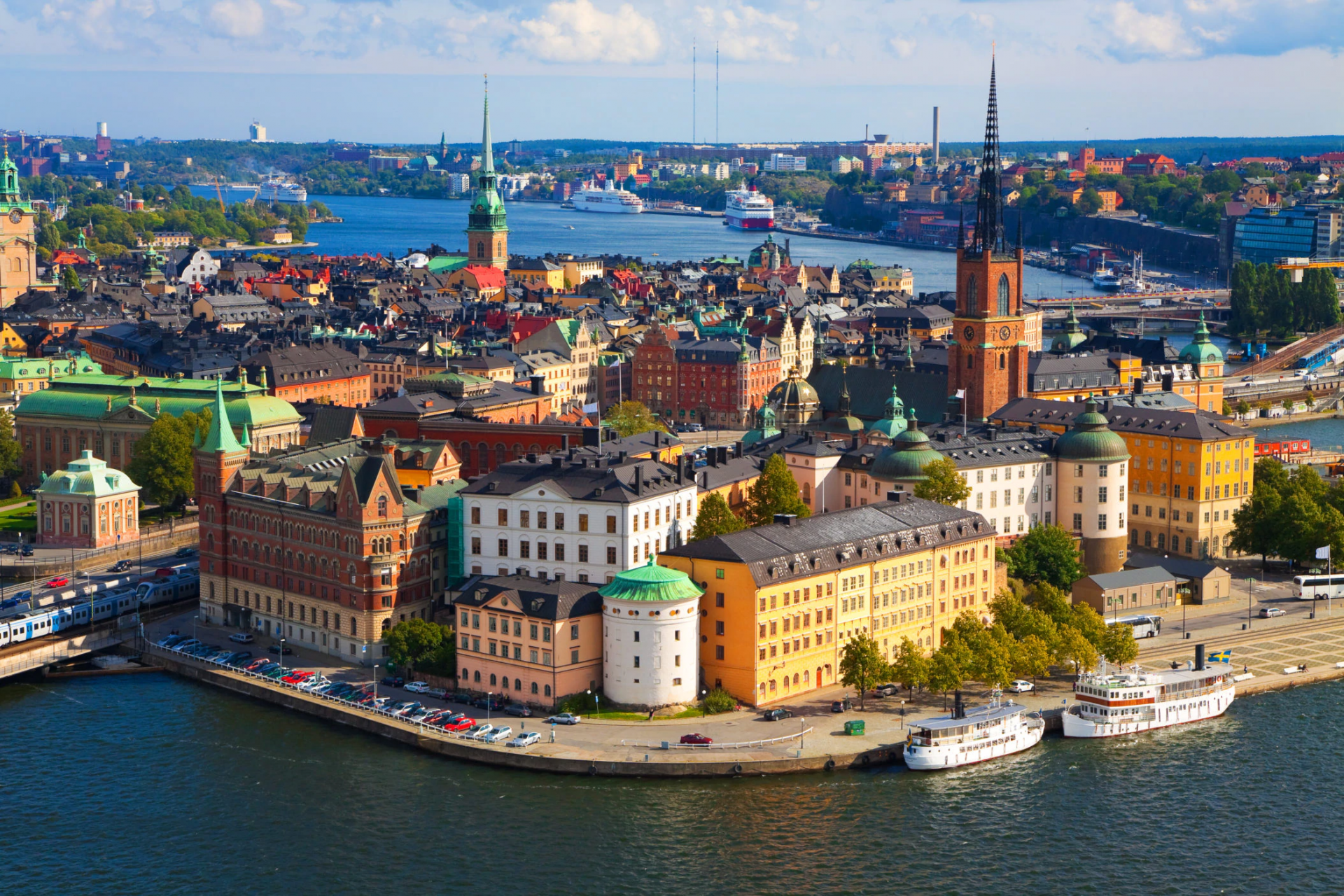 |
| Photo: Getty Images |
Sweden is a constitutional monarchy and a parliamentary democracy, with legislative power vested in the 349-member unicameral Riksdag. It is a unitary state, currently divided into 21 counties and 290 municipalities. Sweden maintains a Nordic social welfare system that provides universal health care and tertiary education for its citizens. It has the world's eleventh-highest per capita income and ranks very highly in quality of life, health, education, protection of civil liberties, economic competitiveness, income equality, gender equality, prosperity and human development. Sweden joined the European Union on 1 January 1995, but has rejected NATO membership, as well as Eurozone membership following a referendum. It is also a member of the United Nations, the Nordic Council, the Council of Europe, the World Trade Organization and the Organisation for Economic Co-operation and Development (OECD).
10. Poland ($471.40 Bn)
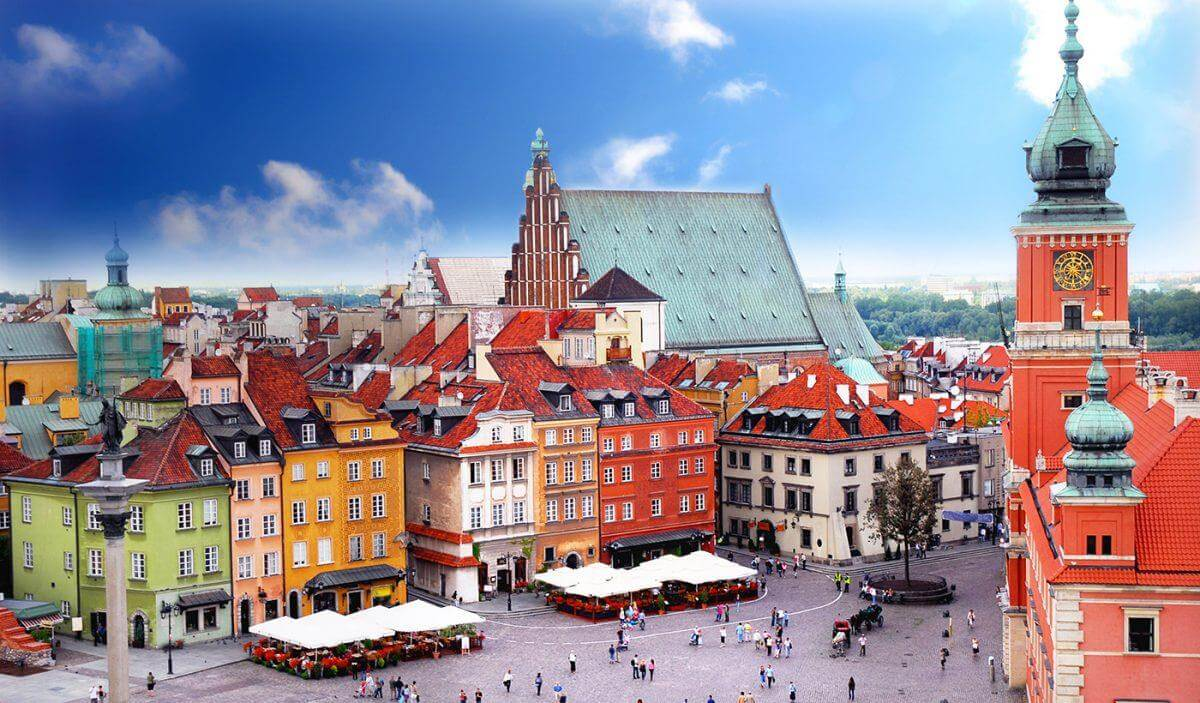 |
| Photo: Getty Images |
Poland is a developed market, and a middle power. It has the sixth largest economy in the European Union by nominal GDP and the fifth largest by GDP (PPP). It provides very high standards of living, safety and economic freedom, as well as free university education and a universal health care system. The country has 16 UNESCO World Heritage Sites, 15 of which are cultural. Poland is a member state of the Schengen Area, European Union, European Economic Area, the United Nations, NATO, the OECD, the Three Seas Initiative and the Visegrád Group.
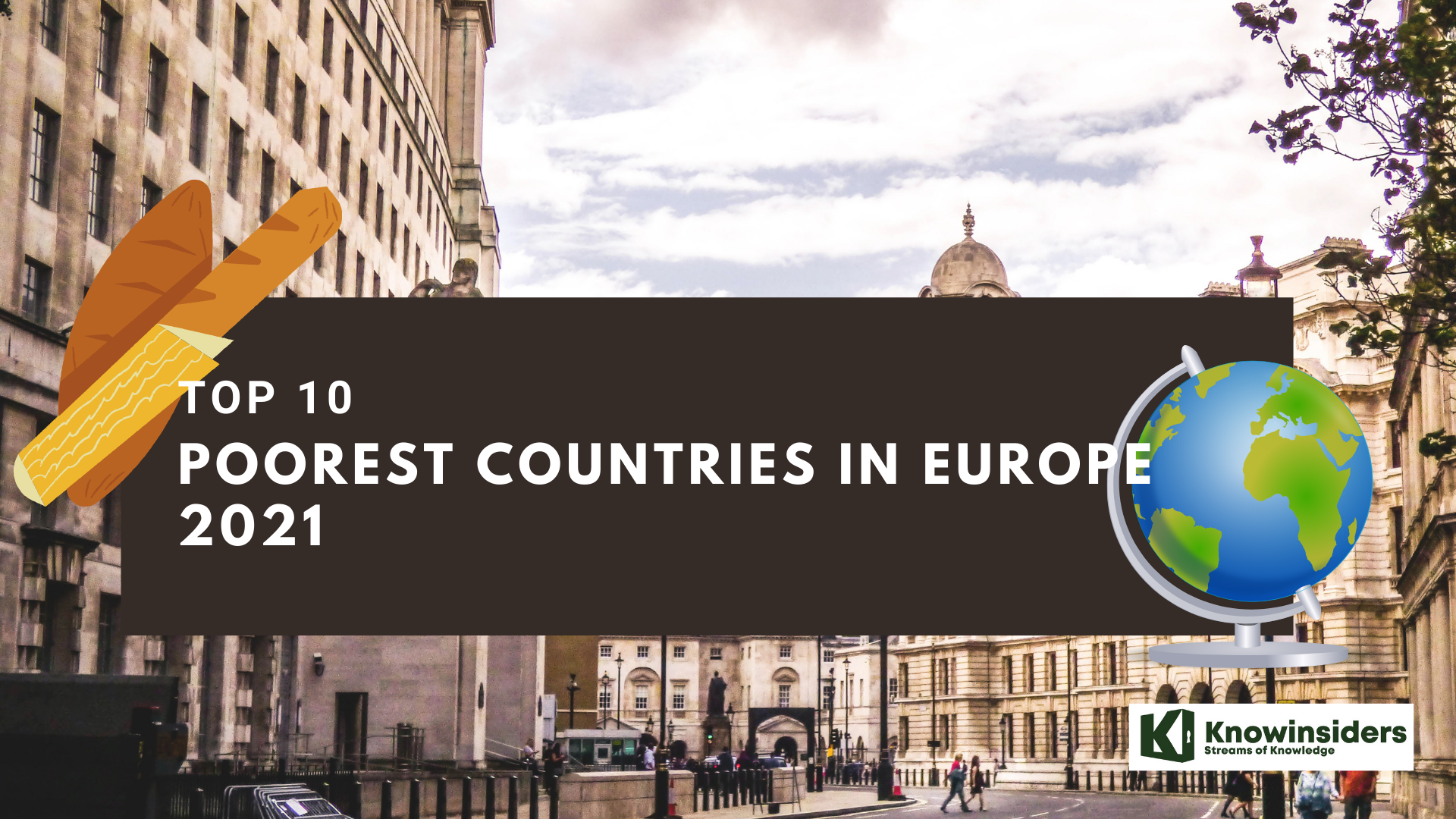 Top 10 Poorest Countries In Europe Top 10 Poorest Countries In Europe Europe has many rich and developed countries, but there are also countries that are struggling with low income and poor life quality. Keep reading to ... |
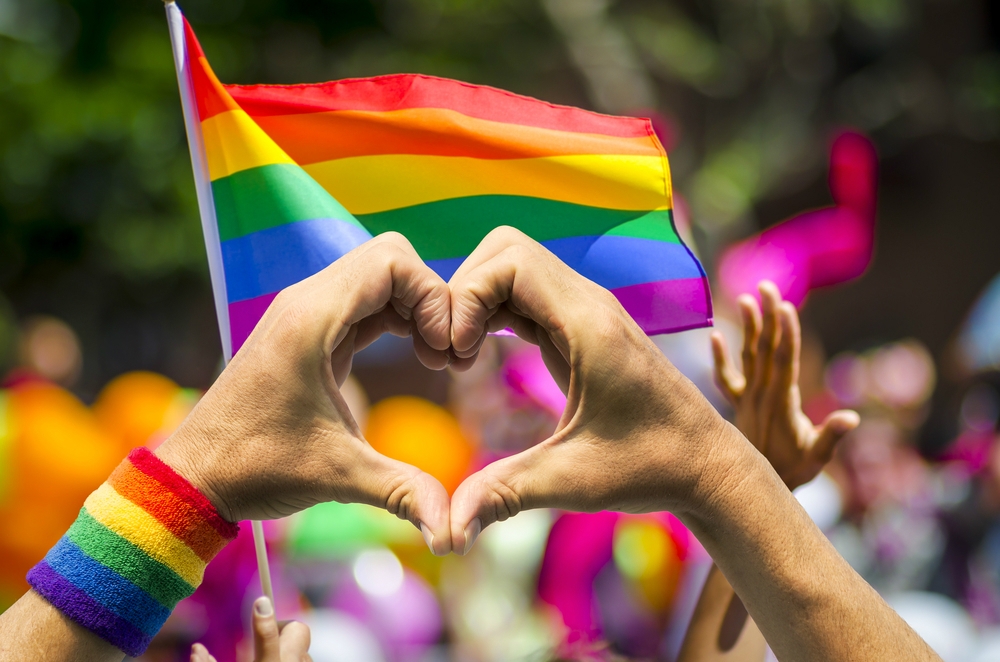 Five Most Friendly Countries For LGBTQ+ Travellers Five Most Friendly Countries For LGBTQ+ Travellers These are five of the best places for LGBTQ+ travel enthusiasts to go, where queer and trans individuals have ... |
 Top 9 Countries with the Most COVID-19 Vaccinations and The Ranking of Countries Per Doses Top 9 Countries with the Most COVID-19 Vaccinations and The Ranking of Countries Per Doses More than 2 billion COVID-19 vaccines have now been given out across the world. Check out The Top 9 Countries with the Most COVID-19 Vaccinations ... |
 Top 11 Easiest Countries To Adopt A Child Top 11 Easiest Countries To Adopt A Child Adopting a child is a life-changing step. If you are thinking about adopting a child, this list of top ... |


























